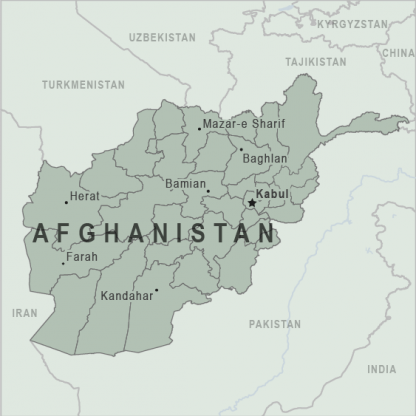
Benjamin Joffe is a sophomore political science major.
After nearly 20 years of combat operations in Afghanistan, the United States has decided to fully withdraw from the region. President Biden set the withdrawal deadline for Sept. 11, on the 20th anniversary of the 9/11 attacks, which sparked their invasion of Afghanistan in order to find Osama Bin Laden, one of the perpetrators of the attack.
Since the outset of the conflict, the United States has spent $113 billion dollars training and equipping the Afghan National Army in preparation for them to westernize and democratize Afghanistan once U.S presence ends.
But on Aug. 15, only a few weeks after most U.S. combat forces had left, the Taliban swept through Kabul, swiftly defeating the U.S.-trained Afghan government and army.
In a press conference on Aug. 16, President Biden stated that “American troops cannot and should not be fighting in a war and dying in a war that Afghan forces are not willing to fight for themselves.”
The notion that the total military failure that has transpired in Afghanistan was somehow on the part of the infant Afghan government could not be further from the truth.
That isn’t to say that the Afghan government wasn’t seeded with deep-rooted corruption, but the larger reasons surrounding the fall of Afghanistan extend deep into the U.S. military agenda, and depict in totality why military involvement has been a mistake from its onset.
When reflecting upon the atrocities that unfolded over the U.S.’ 20-year occupation of Afghanistan, it’s hard to pin an exact reason as to why we remained in the region for so long. But one narrative has remained consistent over three presidential administrations: counter-terrorism is a key priority of the U.S.
This narrative — that shady, overseas terrorist cells threaten to destroy our freedoms and all we hold dear — would be drilled into the minds of the American people for decades following 9/11, allowing the U.S to maintain a steady stream of public support for war efforts in the middle east.
While the public may have initially been overwhelmingly supportive of the invasion of Afghanistan, today, over 70% of Americans support withdrawal from the region.
This stark change in opinion is due to both the duration of the conflict — commonly referred to as being a “forever war” — and the nature of the Taliban insurgency.
What made counterterrorism efforts so difficult — and futile — is how persistent Taliban forces are, and how quickly they can force the loyalty of the Afghanistan people through fear.
This directly ties into how the Taliban was able to take over the region so rapidly; by using fear to continuously hold a grip over the Afghan people, even the Afghan army, trained by the U.S., did not care enough for U.S. interests to stand against the Taliban.
Harrowing images from Kabul show Afghan civilians going as far as rushing airstrips and gripping onto the landing gear of departing U.S. cargo planes, with many falling to their deaths, to escape the Taliban.
For many Americans, the images and stories of the new reality facing millions of Afghans, a reality of strict Sharia law, of deprivation of women’s rights and of other abuses, beg the question: are we right to leave?
While many believe that in principle the United States has a duty to protect human rights and democracy anywhere in the world, that principle very rarely translates into practice when considering how little the U.S. has accomplished in the region over 20 years.
How many more years would be required to stabilize Afghanistan, to win the hearts and minds of its people, and to curb extremism forever? Five years? 10? 50? Even the greatest military minds cannot come up with an answer.
Instead, the more direct solution by far is to cut our losses and end all involvement in the region. The U.S. tore Afghanistan apart by invading it, and our occupation would only postpone the inevitable rise of extremism.
After decades of war and pointless bureaucracy, the priorities of the United States must now shift to focus on the safe extraction of Americans from the region.
Even this proves nearly impossible, as 13 U.S. military personnel were killed in an attack in Kabul this week, and 1,500 U.S. citizens still remain in Afghanistan.
While many argue that the deaths of these Americans could have been prevented if the U.S. had spent more time and resources securing the region, the case is actually the opposite. The U.S.’ practice of moving goalposts back over decades when it comes to withdrawing has culminated in the current scene of disorganization.
In fact, the U.S. extended presence and investment in the region has strengthened the Taliban’s armament greatly, as they have seized hundreds of thousands of small arms and vehicles, originally provided by the U.S. for the Afghan government.
Indeed, the blood of those who die now in Kabul, and that of the more than 71,000 civilians who have died since 2001, rests largely on the hands of the United States’ military failures. But it is not because the U.S. has withdrawn too rapidly; it is because they stayed far too long.













